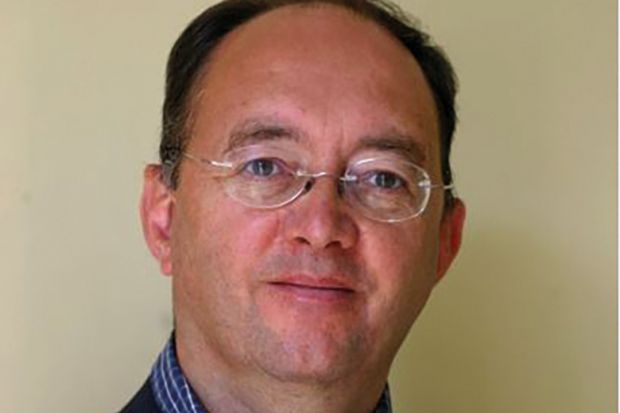A leading authority on the use of technology for language learning has died.
Stephen Bax was born in South Africa in July 1960 but moved to Rhodesia (now Zimbabwe) as a baby and lived there until the age of 11. It was at this point that the family returned to Nottingham, England, yet his early days in southern Africa shaped a lifelong interest in languages and other cultures.
After a first degree in English at Peterhouse College, Cambridge, Professor Bax started his career in 1981 by teaching English in Sudan, studying Arabic in Syria and then working in Algeria as part of his teacher training, which led to a postgraduate certificate in education for teaching English as a foreign/second language from the University College of North Wales, Bangor (now Bangor University). In 1985, he was employed by the British Council in Iraq for three years. He would later gain considerable experience in both Asia and Latin America.
Returning to the academy, Professor Bax gained an MLitt and an MSc in applied linguistics from the University of Edinburgh and a PhD from the University of Kent on intertextual reference and reading. He served as principal lecturer and senior lecturer in applied linguistics at Canterbury Christ Church University (1993-2009) before moving to the University of Bedfordshire as reader in English language, learning, assessment and technology (2009-12) and then professor of applied linguistics (2012-15).
Finally, after taking up a position as professor of modern languages and linguistics at the Open University, Professor Bax was appointed director for research excellence there in 2016, at the time of the formation of the new School of Languages and Applied Linguistics. Despite increasing health problems, he remained deeply involved and continued to attend key meetings and research events remotely.
The author of a seminal paper titled “CALL [computer-assisted language learning] – Past, Present and Future”, Professor Bax also did important research on eye tracking in reading and reading tests and won a prestigious British Council award earlier this year for his work on TextInspector.com, an online tool that can automatically analyse the difficulty of a written text. Yet his wide-ranging linguistic interests meant that he was equally fascinated by the still-undeciphered Voynich manuscript, carbon-dated to the 1420s, and the disputes about whether it is a hoax or represents a genuine or encoded language.
Theresa Lillis, professor of English language and applied linguistics at the OU, described Professor Bax as “an academic who inspired both students and colleagues to push beyond their immediate understandings and to imagine new intellectual horizons”.
He died on 22 November and is survived by his wife Paloma, two sons and a daughter.




